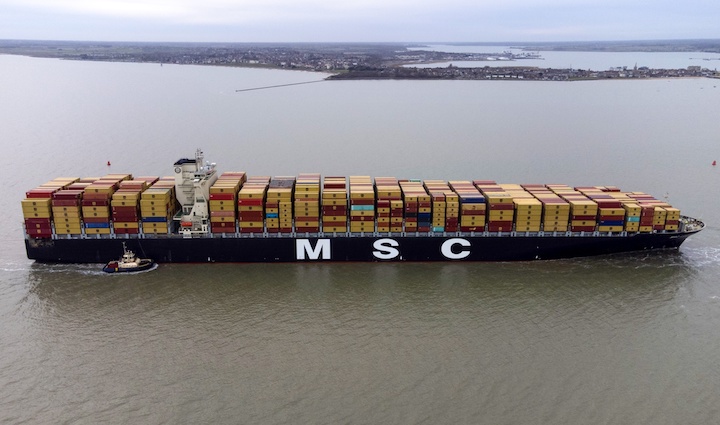The world’s largest container carrier will push back against a proposed US government fine that would rank among the stiffest penalties handed down by the diminutive Washington regulator where the fight is playing out.
The Federal Maritime Commission’s enforcement, investigations and compliance bureau last week submitted an 81-page brief concluding that MSC Mediterranean Shipping Co. SA should pay civil penalties totaling $63.3 million for allegedly over-charging customers and incorrect billing in violation of the Shipping Act.

According to the commission’s procedures, MSC’s response is due by May 3, then the enforcement bureau will have until May 18 to submit an answer. After that, it could be months before an administrative law judge makes a decision, which could then be appealed.
The FMC has handed out plenty of fines over the years, but it’s hard to find one larger than was proposed in the MSC case. Penalties issued by the FMC in fiscal 2023 totaled less than $3 million.
Going back to the early 1990s, there were two cases that led to fines around $20 million, according to the FMC. That’s about $45 million in today’s dollars.
Pandemic Complaints
John McCown, a container shipping veteran, said “the fine is by far the highest I can recall from the FMC.”
Container carriers came under criticism during the Covid years for charging spot freight rates that were eight times higher than the average of the previous five years, as well as late-pickup fees as goods piled up in ports, railyards and truck depots.
Some executives justified those charges by arguing that the forces of supply and demand were at work – not any concentration of an industry where the top eight firms control 80% of capacity. They pointed to intense consumer demand for goods globally, combined with labor restrictions, trade imbalances and other supply chains snarls during the pandemic.
While the enforcement bureau’s brief refers to “market power” and “heavy-handed tactics,” it refers only once to Covid or the pandemic, saying “it was opportunistic for MSC to commit these violations at the height of the Covid pandemic amidst significant global shipping tension and competition.”
Owned by Italian billionaire Gianluigi Aponte, MSC has been consolidating its industry lead in recent years.
In January 2022 it passed A.P. Moller-Maersk A/S for the top spot ranked by overall container capacity when both had about a 17% share. Now MSC is close to 20% while Maersk has 14.6%, according to Alphaliner data.
The FMC is responsible for regulating the US’s international ocean transport system with a staff of about 170 employees and a total budget request for fiscal 2025 of $48.5 million.









